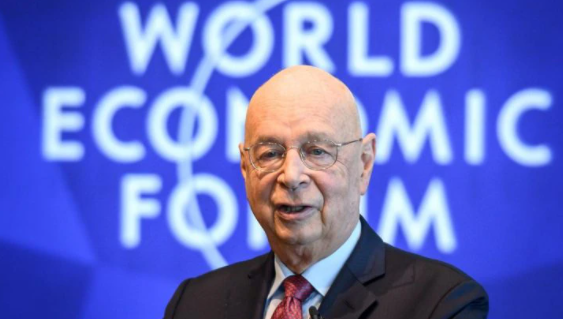The World Economic Forum (WEF) is urging governments globally to criminalize what they term “climate inaction” and impose severe penalties on offenders.
In a recent publication by Klaus Schwab’s unelected organization, the WEF insists that failing to adhere to the globalist green agenda should be categorized as a “human rights violation.”
In most developed nations, human rights violations are considered grave offenses, carrying significant penalties. In the United States, for instance, penalties for human rights violations range from fines to imprisonment for up to one year or both, according to the FBI.
If such violations result in bodily harm or involve the use, attempted use, or threatened use of dangerous weapons, explosives, or fire, the penalties can include fines, imprisonment for up to ten years, or both.
In cases where human rights violations result in death, kidnapping, aggravated sexual abuse, or an attempt to commit such acts, or even an attempt to kill someone, the convicted individuals may face imprisonment for any number of years, life imprisonment, or even the death penalty.
Notably, proponents of the green agenda, Democrats, and their media allies frequently emphasize that the so-called “climate crisis” is causing fatalities.
By categorizing “climate inaction” as a human rights violation, those deemed guilty of “denying” global warming could potentially face the death penalty.
According to the WEF, this is the appropriate approach to advance the green agenda.
The WEF poses the question, “Is climate inaction a human rights violation?” in an article on its website.
In the same article, the WEF anticipates a growing number of climate-related lawsuits in the coming years.
The article notes, “Climate-related litigation generally seems poised for expansion.”
The WEF argues that “climate deniers” are responsible for a “record-breaking number of heat-related deaths.”
According to the Global Climate Change Litigation database, there have been more than 130 cases worldwide that have brought human rights-based claims against governments.
Additionally, Clémentine Baldon, a legal advocate for climate litigation, expressed last year to the WEF that there is a strong expectation that human rights-related climate claims “will continue to increase.”
Recently, a lawsuit was brought before the European Court of Human Rights by six young individuals against 32 European countries. These individuals allege that these countries have failed to address the “climate crisis” purportedly caused by human activities.
“It’s being described as ‘unprecedented’ in terms of potential impact,” the WEF claims.
“A win could push some of the wealthiest countries in the world to ramp up their responses to a changing climate; a loss could affect the numerous other legal efforts now underway to target inaction.”
Last year, Norwegian Finance CEO and WEF speaker Kjerstin Braathen said that people should be prepared to suffer “pain,” inflation, and “energy shortages.”
“We need to accept that there will be some pain in the process,” Braathen said.
“The pace that we need [to end climate change] will open up for missteps.
“It will open up for shortages of energy.
“It will create inflationary pressures, and maybe we need to start talking about that — that that pain is actually worth it.”




